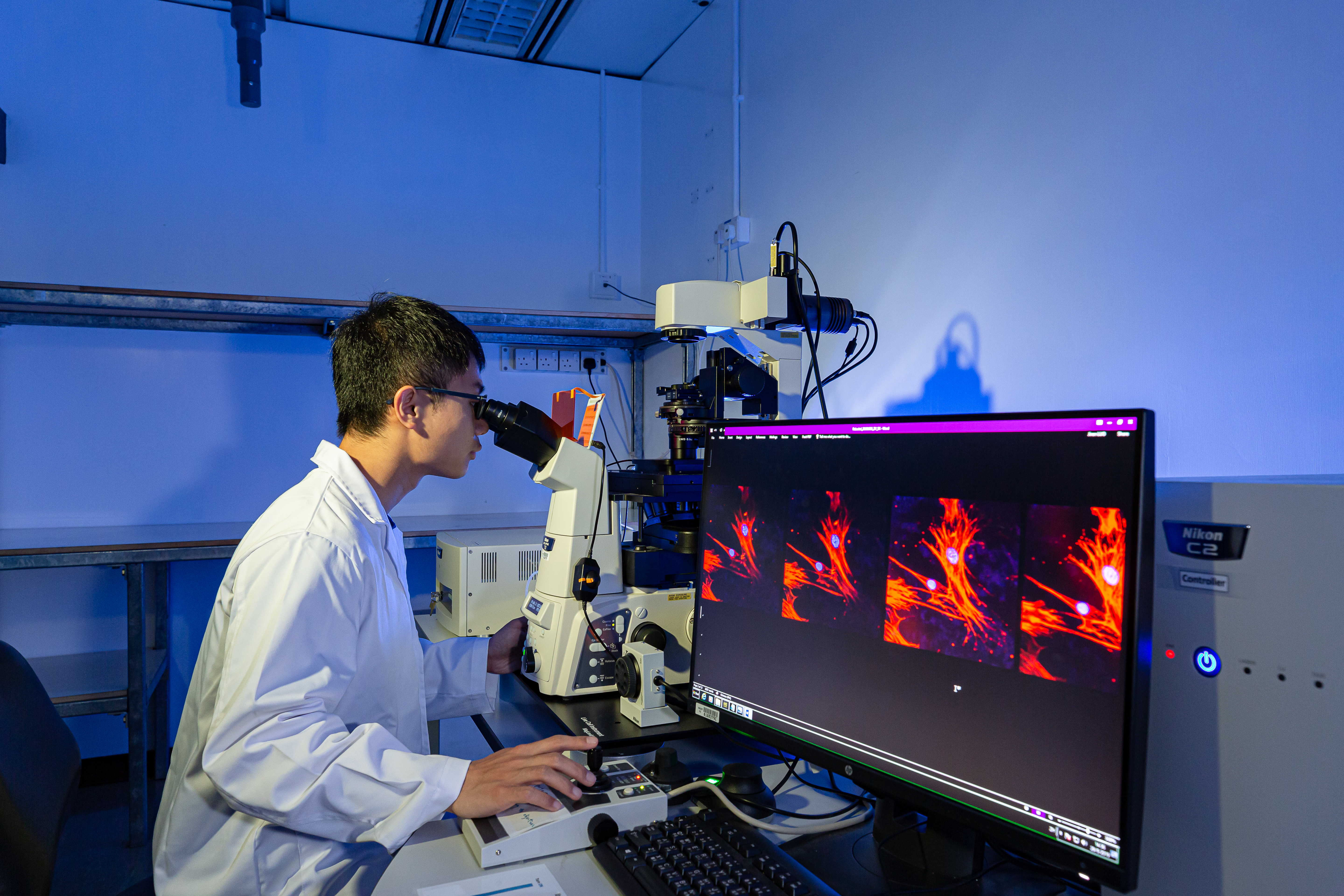ACADEMICS
The BIEN program comprises four concentration streams to address different applications in the bioengineering area. The four streams are:
This stream addresses the application of biological information technology to develop new applications and products. Bioinformation engineering can be applied on areas such as protein structure prediction, drug design, biodiversity, data mining and knowledge discovery in molecular databases, data interpretation and evolutionary biology.
Researchers in this stream aim to create and apply engineering tools to improve the quality of health care and clinical practice. To achieve this goal, statistical/feature-based segmentation methods (e.g. Statistical Decision Theory, Markov Random Fields, EM Algorithm, etc), deformable model based object reconstruction method (e.g. Statistical Decision Theory, Markov Random Field, EM Algorithm, etc), deformable model based object reconstruction methods (e.g. Active Contours/Surfaces, Level Set Methods, etc.), image registration and visualisation methods, biomedical signal modeling processing techniques will be exploited. Potential application will be in the areas of image-guided surgery, such as surgical navigation, surgical planning, and computer-aided diagnostic systems.
Bioprocessing is the application of chemical engineering principles to the design of biocatalysts, cells, reactors, separation systems and their integration by process systems engineering into an optimal bioprocess plant. In addition to technology aspects, engineers need to be aware of regulatory, safety and ethical issues in biotechnology.
There is growing interest in bioproduct design in the industries. Researchers are working on the development of high-value-added products such as pharmaceuticals, biopharmaceuticals, natural products, Traditional Chinese Medicines (TCM), personal care and household products. The application of bioproduct design is extensive.
Biomaterials and biomechanics is the engineering study of the physical and biological properties of synthetic polymer, metal, ceramic and other materials, and their interaction with blood and soft and hard tissues. It aims to provide novel, reliable and safe new materials and devices for biomedical use. Engineers and scientist of different disciplines work closely together for the creation of novel biomaterials and biodevices. Physiologists investigate in novel bone implants whereas chemists create nano-engineered surface coatings for bioanalytics. The research in this stream ranges from the investigation of new engineering devices for rapid detection of food- and air-borne pathogens to the design of engineering materials for artificial organs and bone replacement.
BioMEMS is the application of biological and bioanalytical methods to micro electrical and mechanical systems such as gene chips.
Using engineering principles and nano/micro fabrication techniques, we construct miniaturized devices to study biological systems and develop new technologies that enable the realization of point-of-care diagnostic products. Our research is multidisciplinary and involves researchers in various academic departments.
We are very well positioned at HKUST to perform this research. Our Materials Characterisation and Preparation Facility (MCPF) is equipped with modern technology for in-depth materials study. Microdevices for various applications in life sciences are produced in our Nanoelectronics Fabrication Facility (NFF). The challenge of our work is its multidisciplinary that requires a broad engineering understanding; we are compensated by an emerging field of applications in life sciences and the potential of our work to improve life quality.
Pharmaceutical engineering emphasizes on the engineering aspects of pharmaceutical production, development, and operations.
The development of processing technologies for the production of pharmaceuticals is of our major research interest. The advancement in the study on the manufacture of enantiomers and polymorphs, the use of high-dimensional phase diagrams for rapid process synthesis, and the use of systematic methods for process development will definitely enhance the western medicine manufacturing process. For Chinese medicines and dietary supplements, the liquid-liquid extraction, chromatography, crystallization and supecritical fluid technologies are being developed for upgrading the quality of medicines and improving the quality assurance of products. Besides, the design of pharmaceutical dosage forms is also essential in this area of research.

